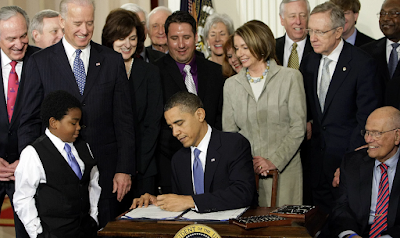Why tugging the plug on medical health insurance mergers was destined to happen
Health Insurance - When Barack Obama transferred his signature health care law this year 2010, one of its goals was to encourage competition among insurance providers. The insurance providers reacted by snapping the other person up. Last summer months four of the five biggest health insurance providers announced mergers, reducing their quantity to three. The National government has cried halt now.
On Thursday night the justice team submitted lawsuits to stop two mergers that could have drastically consolidated medical insurance market. "These mergers would limit competition for medical health insurance products bought from markets in the united states and would give marvelous power over the country's medical health insurance industry to just three large companies," legal professional basic Loretta Lynch said announcing your choice.
"Our activities seek to maintain competition that maintains payments down and drives insurance providers to collaborate with doctors and private hospitals to provide better medical for all People in america."
Both Anthem, that was set to obtain Cigna, and Aetna, that was set to obtain Humana, have said they'll charm the ruling. But experts believe their it’s likely that slim - at least so long as there's a Democrat in the White House.
Your choice by the justice section comes at the same time when it has signaled that it will require a tougher position on antitrust concerns, says Jeffrey Spigel, brain of the Antitrust Practice Group at Ruler & Spalding. Beneath the Obama administration, both justice team and the National Trade Commission show more determination to litigate antitrust situations when previous administrations have opted to stay, Spigel said.
Several other multibillion money bargains have been obstructed lately by the justice division , including the suggested merger of cellular companies AT&T and T-Mobile in 2011 and the suggested merger of petrol field services providers Halliburton and Baker Hughes this season.
Health Insurance
The latest circular of mega mergers in the insurance industry occurs the pumps of waves of loan consolidation which have remaining only five major countrywide insurance providers. The mergers could have combined four of these insurance providers into two companies, going out of only three dominating insurance companies in america. Anthem and Cigna could have consolidated the top workplace market while Aetna and Humana could have had a respected position in the private Medicare Advantages market.
Medical health insurance companies have long presented that mergers are necessary for scale to be able to stay competitive. Anthem likely to realize around $2bn in "synergies" from its combo with Cigna, while Aetna possessed projected around $1.25bn in personal savings for its package with Humana.
But the discounts angered many in Congress. Throughout a regulator testimony, Anthem and Aetna "refused to recognize a dime of intended cost savings from these mergers that might be offered to the consumers", said Carmen Balber, professional director at Consumer Watchdog, a consumer advocacy company.
"Premiums have risen and benefits been down from past insurance mergers," discussed Balber, adding that both proposed mergers could have resulted in higher prices, even worse benefits and much more difficulty getting benefits for consumers. "It really is a great signal that the Section of Justice clogged" the bargains, Balber added.
Aetna and Humana claim that the blend of both companies would become more "efficient and effective", which would reduce cost for associates. Both companies said in a joint declaration they have "plans to vigorously protect the companies' pending merger". Anthem is challenging the justice department's knowledge of the insurance market, placing out a declaration stating that "the DoJ's action is dependant on a flawed examination and misunderstanding of the powerful, competitive and highly controlled healthcare landscape which is inconsistent with just how that the DoJ has assessed past healthcare orders." Cigna because of its part has used a far more muted tone, advising buyers the offer is not a projected to close this season much longer, "if".
Overturning the ruling on charm will be difficult, Spigel predicts. During antitrust merger reviews, companies work to recognize potential divestitures in regions of difficult overlap as a bargain. While Anthem has said it "will stay receptive to any initiatives to reach funds with the DoJ that allows us to complete the deal," neither of both proposed mergers could actually provide enough divestitures to gratify regulators. One concern with divestitures is finding clients that could not be difficult in that consolidated market, discussed Spigel. Allowing both mergers to move forward would also make it more challenging for new insurance providers to enter market, further hindering future competition, said Balber.
The action by the justice office signals that medical insurance market is becoming so focused it is improbable that any more large scale offers can be carried out. "At least under this supervision," says Spigel, adding with fun, "who knows exactly what will happen if Trump is elected."






0 comments
Post a Comment
Comment in a relevant way
Should not plant active links
You are obedient, we are reluctant